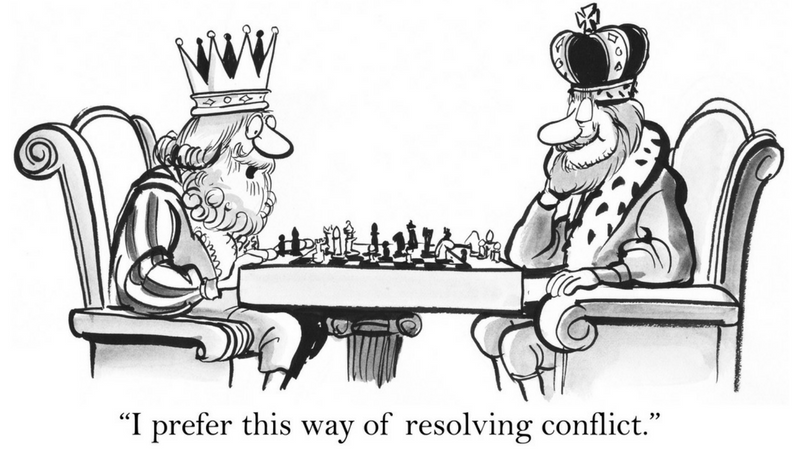Control Issues Aren’t About Control
I usually try to open each of my pieces with a little anecdote, a snippet from one experience or another that I’ve had. I find that it grips you and encourages you to read more.
I can’t do that with this piece. I can’t do it because I have too many anecdotes to pick from. Nearly every week, at least one woman in one of my support groups makes a joke about her ‘control issues.’ “Hahaha,” she’ll giggle, “it’s just my control issues again.” And if it’s not that exact quote, then I will hear the twin variant: “I just have control issues,” also invariably followed with a giggle.
For a long time, I didn’t think to question these statements. I know from my own life how reassuring control is. Knowing what to expect and how to expect it takes away a level of worry and anxiety that I’ve often experienced in my own life.
It was also maddening.
I didn’t have the energy to pursue everything the way I knew it should be done (and obviously, my way was the only right way). I’m not talking about physical energy either; I didn’t have the mental or emotional energy to manage these situations, either. My battery was E.M.P.T.Y. and yet it was still impossible for me to let go.
The reality is that my desire for control rarely improved anything. While I often controlled the event, it didn’t always yield the results I desired or envisioned, and more than once I stampeded over a friend or another innocent bystander along the way. It wasn’t good for my relationships.
As bad as these results were, they were still better than the anxiety, fear, and restlessness I dealt with when my fingers were pried off a project by a (wise) boss or another leader.
Sleepless nights and irritability were common side effects, wondering how a project possibly could be executed well by (insert name of hapless, clueless person here). Anger would fester (what were they thinking?), righteous indignation would rise, and I was an all-around pretty frustrating person to be around.
As Dr. Phil would say, “How is that working out for ya?”
Just fine, Doc. Go sit over in the corner. I don’t want to hear from you right now.
Typically, this would be the point in the story where I would share a transforming moment for me, one in which I realized how wrong I was and how my entire life pivoted upon that moment. Heaven shone a light on me, angels sang, and I repented of all my terrible control issues.
That would have been easier, I think.
My pastor sometimes talks about the different ways that people come to faith. For a lot of people, it’s a lightning bolt moment.
They have an insight, or something touches their heart and their eyes are opened, and they fall to their knees and pray desperately and urgently for a relationship with Jesus.
For some, like me, it’s more like crossing the border to Canada without going through a checkpoint. You wander through the hills, not knowing which country you are in until you hit unmistakable evidence that you have entered a new land.
Not only was my faith conversion experience like the second example, my desire for control was also the same way.
I couldn’t tell you when my need for control let up. I can tell you when I discovered that I’d changed in this area.
I recently reached out to some people I know for help with a situation. I’d found a need with one of my friends and knew the solution was simple, although it wasn’t one I could fill myself. I reached out to someone in my network, and a week later received a response:
Teresa, I believe we have a plan. Please do not say anything to [the individual] but Steve is going to begin enacting our plan. If you have any questions, please do not hesitate to let me know.
Don’t say anything. No details on what the plan is. No further information offered, or if the need would be filled as I originally inquired.
It took me a moment to figure out what bothered me about the situation before it hit me: I wasn’t bothered. I was feeling the absence of frustration and anger. I questioned myself: Why doesn’t this upset me? Why am I not having my usual response? Am I wrong for not being upset?
I spent the rest of the day and part of the next morning before the thought popped into my head: I trust the friend in my network who arranged Steve’s assistance. I trust Steve.
Knowing that they are involved and have a plan to assist gives me peace of mind and the ability to let go. Their plan was probably better than my plan. If they needed my assistance, I would get a call and a request (which happened two days later, and I was right: their plan was better than mine).
Control issues aren’t about control. They’re about trust.
This is a big lesson for me, and it has me evaluating other situations against this insight. How much am I taking on out of a lack of trust? Is that lack of trust merited?
It turned my mind to God and the question of surrender. So often we hear about “surrendering to God” and “turning our lives over to him.” For someone like me, those ideas have always been anxiety-inducing.
As my relationship with him has grown, I’ve experienced his grace, his mercy, and his love. I haven’t seen all my prayers answered. I still go through seasons of pain and stormy times.
I’ve also experienced his sheltering hand and prayers answered in unexpected ways. Looking back, I see his goodness in my life, even when it didn’t feel like goodness at the time.
He’s taught me — and teaching me — to trust him. It is easier to say to him, “I don’t understand this. I don’t understand why I’m going through this situation. Even so, I know it is for my good and your glory.”
It’s all about trust.
Control issues aren’t about control. They’re about trust.
I mentioned this in the Wounded Birds Ministry Facebook group and got some pushback. “Too many people have let me down. I just don’t trust anyone anymore.”
To quote Dr. Phil: How is that working for you?
I want to be clear: I’m not suggesting blind trust. I’m not suggesting we make ourselves vulnerable to strangers and hope for the best.
I am suggesting that perhaps we paint too many of our relationships with the same brush, carrying stories from our past into our present, holding us back from true intimacy and relationship.
Also, sometimes trust is situational — we may be able to trust our best friend to sit with us on the phone and cry with us for an hour, but not to show up to our coffee date on time.
Here are some questions I’m using to evaluate a situation now when I feel a need for control:
– How long have I known this person/people?
– What are some times they’ve followed through for me? Were these big or important to me (like helping me out of a jam), or smaller situations (like sending a text as promised)?
– What are some times they’ve let me down? Where these big or important situations, or smaller situations? What happened as a result?
– Have I seen this person in this situation before? How did they handle it? What was the outcome?
From here, I can take these answers and compare them to the specific situation. What’s their track record? If it’s positive, then I can practice letting go. If it’s not, then it’s a matter of problem-solving: What would make me comfortable? What is another way of approaching this situation?
I’m finding that stopping and pausing to consider these questions help minimize my reactivity and help me approach situations from more of a problem-solving mindset than an emotional one. It’s helpful.
There’s an unexpected side effect: I can’t (or won’t) always let go or release the situation entirely, but at least I know I’ve made a conscious decision to participate and that alone reduces my resentment.
What about you? Are your control issues about trust, too? What are some ways you manage them?
Looking for daily inspiration and community? Join our warm and supportive Facebook group!









